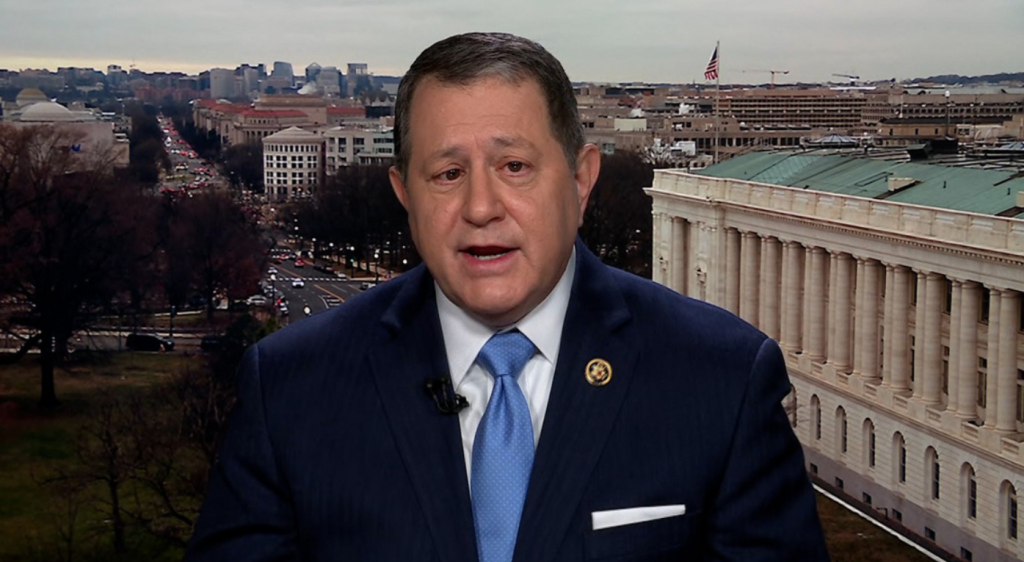NEW YORK… • An incumbent elected official was the target of a rant that was filled with profanity and was delivered by the head of the Manhattan Democratic Party.
Keith Wright, a significant figure in New York politics, was overheard speaking those words. “I dug her grave and she rolled into it,” he said. An opponent was referred to as “lazy, incompetent — if it weren’t for her, I’d be in Congress.” He went on to use obscenities to disparage the opponent.
The audio was produced by artificial intelligence to have the voice of Wright, and it was given out anonymously with the intention of sowing the seeds of political unrest. Swiftly, Wright spoke out against it.
It is one of the most recent and egregious deployments of deepfake audio in the 2024 election season, and it demonstrates the rising use of artificial intelligence as a destructive instrument in American politics. The episode was initially reported by POLITICO.
Officials from law enforcement and professionals in artificial intelligence were also angered by the occurrence, and they warned that it could result in the dissemination of false information during future elections across the country. However, there is not much that the nation can do about it.
“The regulatory landscape is wholly insufficient,” Ilya Mouzykantskii, the inventor of a software startup that utilizes AI-generated audio to phonebank voters, said in an interview with POLITICO “The regulatory landscape is wholly insufficient.” “This will be the dominant tech story of this election year.”

Following an altered Joe Biden robocall that occurred prior to the New Hampshire primary, the created Wright audio was the first instance that POLITICO was able to identify of artificial intelligence-generated content being utilized against a political opponent in the state of New York.
In the realm of politics, dishonesty and persuasion are not new concepts. All the way from the iconic Watergate scandal that occurred in the Nixon White House to the “Swiftboat” attacks that were carried out against John Kerry’s presidential campaign in 2004 to the interference that Russia had in Donald Trump’s victory in 2016, incendiary methods have been employed in American elections for a very long time. Furthermore, they are not exclusive to candidates and occupants of the White House; instead, hyper-local campaigns have also been plagued by the presence of misinformation.
These kinds of manipulation, ranging from the mundane to the epic, are currently being overshadowed by the advent of artificial intelligence technology that is credible enough to easily mislead or inform the general public. In addition, this is taking place at a time when there is a widespread spread of misinformation and a diminishing faith in traditional media.
New York and the majority of other states are just now beginning to address the issue, but larger states such as California and Texas have already passed legislation that addresses the harmful use of deepfakes in political campaigns.
“The scalability is terrifying,” said Mike Nellis, a political consultant with Authentic Campaigns, which employs generative AI to write fundraising letters for politicians. “The capability to scale is absolutely terrifying.” It is possible that fabricated audio in New York politics has not yet made headlines, but according to Nellis, “I’m certain that in smaller circles, things like this have been happening.”
During the month of January, a robocall that impersonated Vice President Joe Biden urged individuals to abstain from voting in the New Hampshire primary. Additionally, the artificial intelligence platform OpenAI blocked the campaign of Democratic rival Dean Phillips from employing their technology to create an audio chatbot with the candidate’s voice.
With regard to that particular scenario, artificial intelligence was utilized to assist a politician rather than to cause harm to an adversary. A similar action was taken by Mayor Eric Adams in the year 2023, when he used artificial intelligence to synthesize audio of his own voice and then used it to deliver public service announcements in languages that he did not speak, such as Spanish and Yiddish.
Post Source: politico.com
























